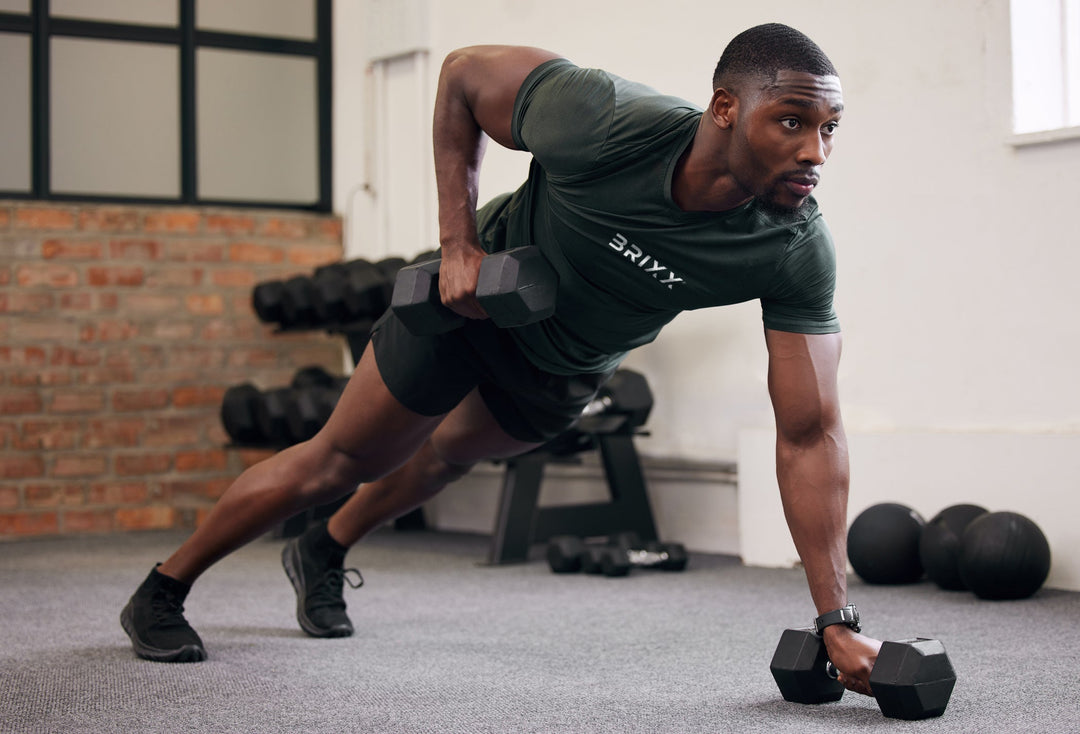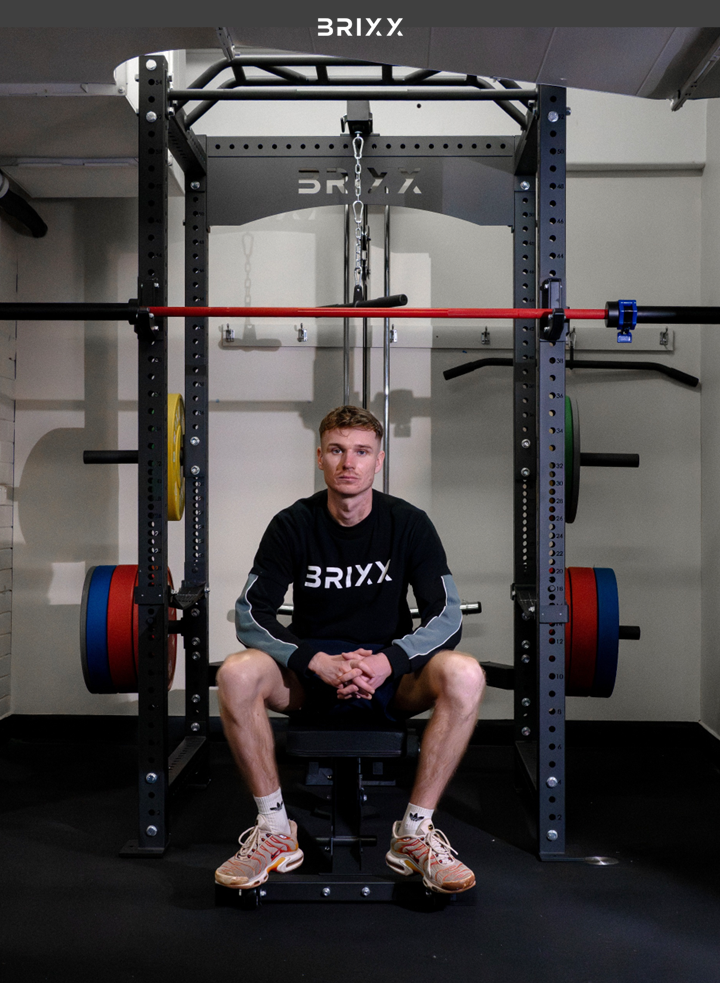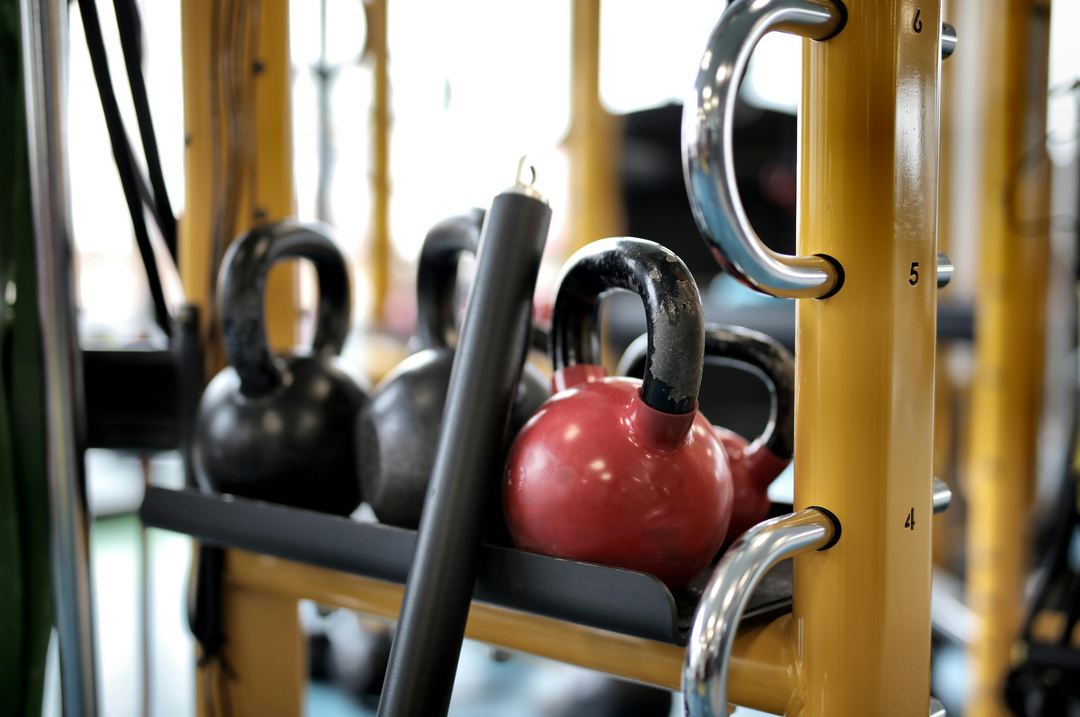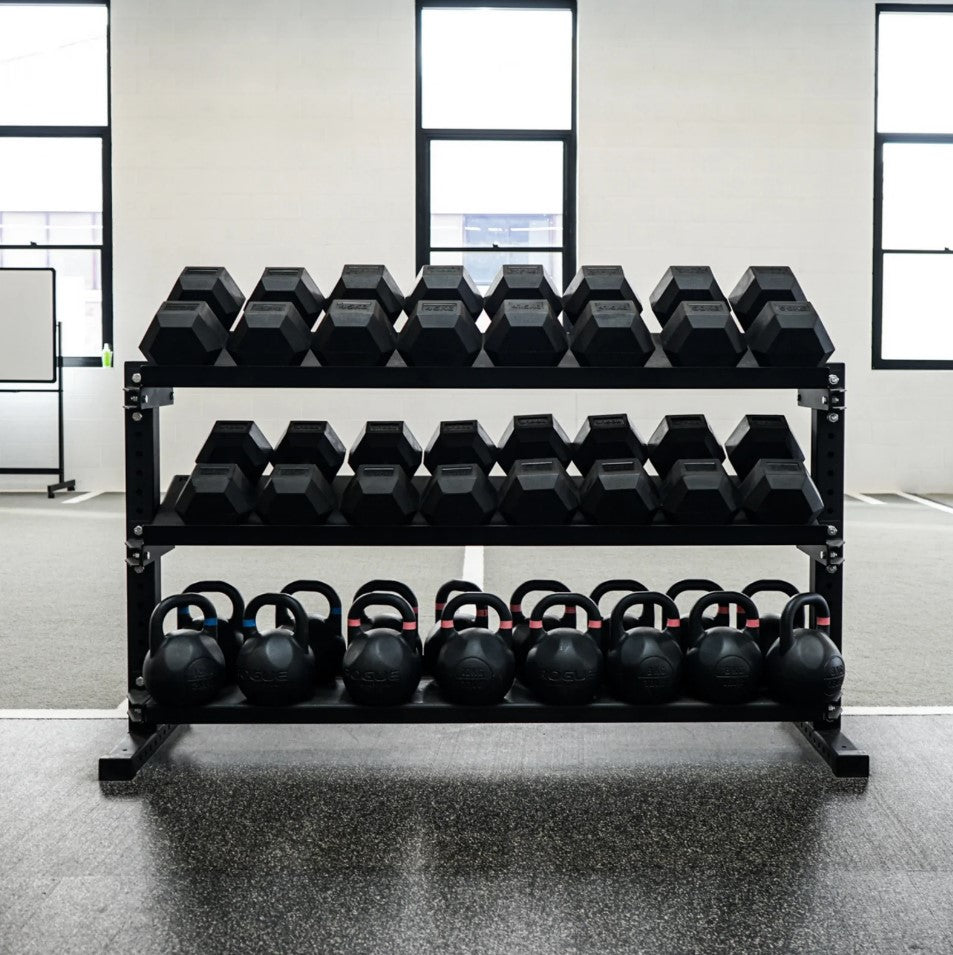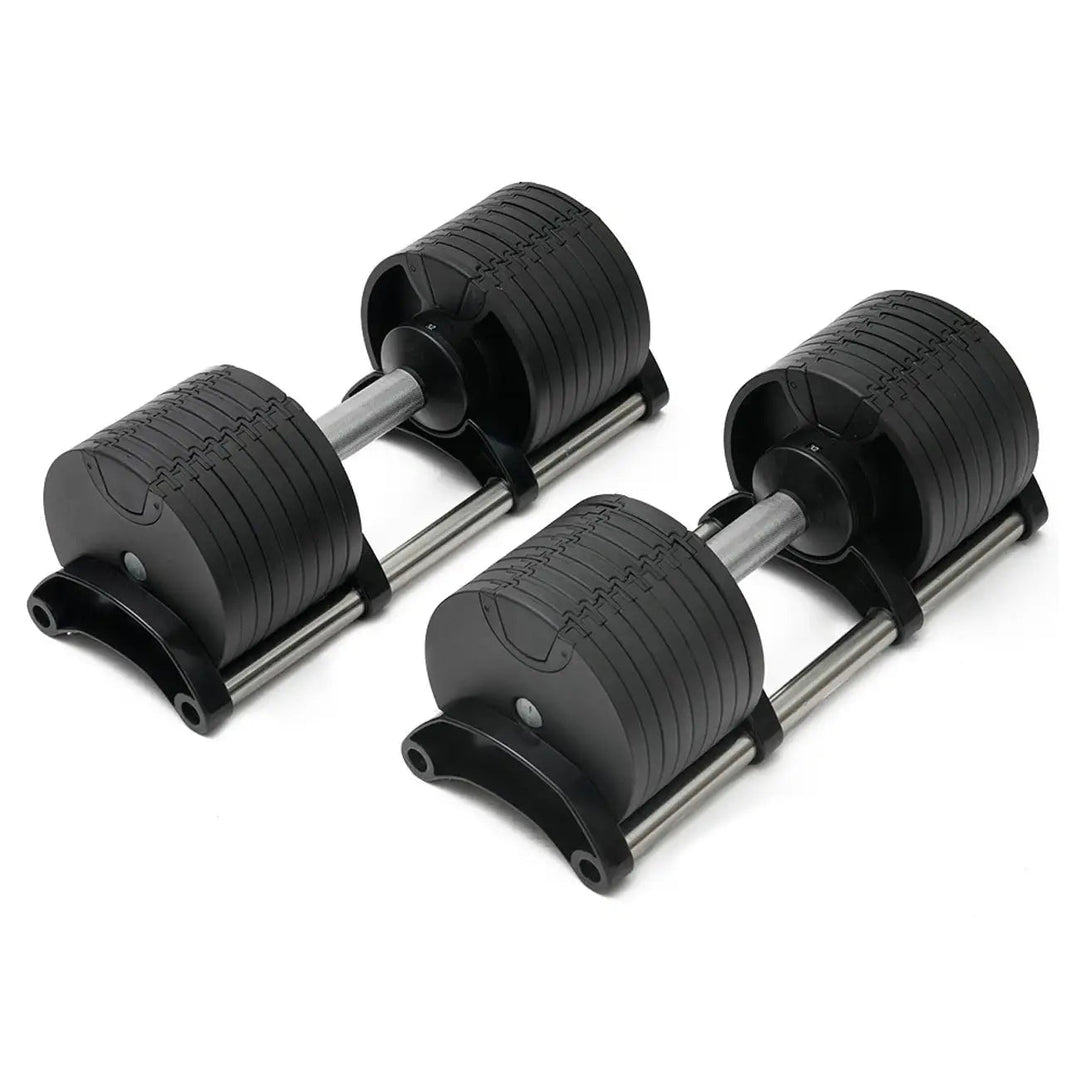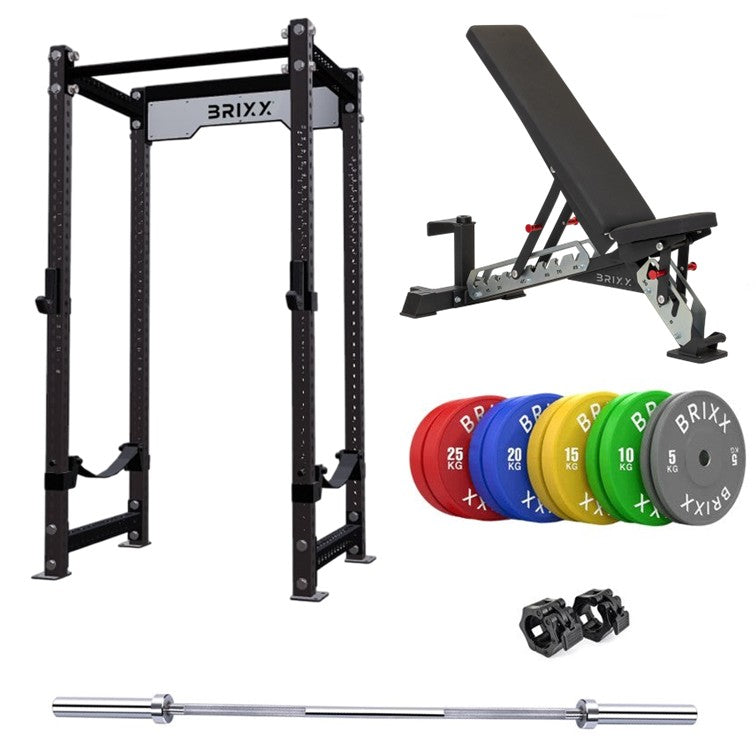Chest Press Machines vs Free Weights: What’s Best for Serious Strength Training?
If your goal is to build upper-body strength, improve pushing power, and develop a well-rounded chest, the chest press should be at the core of your program. But the question remains: should you invest in a chest press machine or stick with free weights like barbells and dumbbells?
In this guide, we’ll break down the pros and cons of each approach, explain who they suit best, and help you decide what belongs in your gym - whether you’re building a commercial space or upgrading your home setup.
We’ll also spotlight premium options like the BRIXX Platinum Series Chest Press Machines, designed for serious lifters and professional facilities.
What Is the Chest Press?
The chest press is a horizontal pushing movement that primarily targets the pectoralis major, deltoids, and triceps. It's one of the most fundamental compound exercises for upper-body development.
It can be performed using:
-
Barbell or dumbbells on a flat, incline, or decline bench
-
Plate-loaded or pin-loaded machines
-
Multi-function units or specialized single-function machines
Regardless of method, the motion trains your body to press weight away from your torso, which is key for athletic performance, pushing power, and muscle growth.
Why the Chest Press Matters in Your Program
Chest press exercises aren’t just for bodybuilders - they offer broad benefits across fitness goals:
-
Strengthen upper-body pushing capacity
-
Develop muscular size and symmetry
-
Improve joint stability (shoulders, elbows)
-
Support functional movements like pushing doors, lifting objects, and sport-specific actions
But not all equipment is created equal. Choosing the right format - machine or free weights - makes all the difference in your progress.
Machine Chest Press vs Free Weights: Key Differences
Let’s explore the major factors that separate machines from free weights, starting with the pros and cons of each.
Free Weights (Barbells & Dumbbells)
Pros:
-
Engage stabiliser muscles
-
Allow greater range of motion and natural movement paths
-
Highly versatile (can train incline/decline easily)
-
Better for functional strength and athletic performance
Cons:
-
Higher learning curve (especially with heavier loads)
-
Increased injury risk without proper form or spotter
-
Setup and cleanup take longer
-
Not ideal for every user (e.g., older populations or beginners)
Best For:
-
Experienced lifters
-
Athletes training for performance
-
Gyms with space for benches and racks
Chest Press Machines
Pros:
-
Safer for beginners and injury rehab
-
Provide consistent resistance across the movement
-
Reduce strain on stabiliser muscles (focus purely on chest, shoulders, triceps)
-
Fast and easy to set up
Cons:
-
Less activation of secondary muscles
-
Fixed movement path may not suit all body types
-
Can limit range of motion depending on the machine
Best For:
-
New lifters
-
Time-efficient training
-
Commercial gyms with members of all levels
-
Targeted muscle isolation
Product Spotlight: Premium Chest Press Machines by BRIXX
For gym owners or home users who want a professional setup, BRIXX Fitness offers two standout machines in their Platinum Series - designed for high performance, durability, and user comfort.
1. BRIXX Commercial Pin Loaded Multi Press (Chest/Shoulder Press) – Platinum Series
This versatile unit is ideal for commercial facilities looking to save space without compromising function. The Multi Press allows users to easily switch between:
-
Flat chest press
-
Incline chest press
-
Shoulder press
Top Features:
-
One-touch adjustments for quick transitions between exercises
-
Super-sized HDR grips for secure and comfortable training
-
96 kg weight stack with a smooth cable system
-
Ergonomic design with an easy entry/exit layout
-
Built from premium 3 mm carbon steel with stable feet
Why It Stands Out:
Instead of buying three separate machines, you get a compact, all-in-one press station that supports strength progression across multiple upper-body angles.
2. BRIXX Commercial Pin Loaded Chest Press - Platinum Series
If you’re after a more traditional chest press machine with unmatched build quality, this unit delivers.
Key Features:
-
96 kg weight stack with ultra-smooth pulleys and cables
-
Multi-grip handles to target chest from different angles
-
Adjustable pop-pin seat and back pad for perfect positioning
-
Industrial-grade bearings, German-designed ABS shielding
-
Quiet, seamless operation - ideal for premium spaces
Who It’s For:
Commercial gyms that want a dedicated, zero-compromise chest press machine with reliable biomechanics and long-term durability.
Mid-Blog FAQ: Chest Press Machines
Q: Are chest press machines good for building mass?
Yes. Machines provide consistent resistance and allow users to safely lift heavier loads with minimal setup time. They’re especially effective for hypertrophy programs.
Q: What’s the weight stack on BRIXX machines?
Both BRIXX machines offer a 96 kg weight stack, which is more than enough for intermediate to advanced lifters.
Q: Can these be used in home gyms?
While designed for commercial use, home gym owners with dedicated space (and the desire for premium equipment) can absolutely benefit. Just note both models are made to order.
Q: Are these machines available now?
These are made to order with a 60–80 day lead time. Contact info@brixxfitness.com.au for up-to-date availability.
What About Plate-Loaded Chest Press Machines?
Some athletes prefer plate-loaded machines for a hybrid experience between free weights and machines. These typically offer:
-
Natural movement path
-
Control over load increments
-
Closer feel to barbell pressing
-
Increased space requirements
BRIXX also offers a Plate-Loaded Incline Chest Press for those seeking this hybrid format - ideal for advanced lifters and strength athletes.
Which Is Better for Progress: Machines or Free Weights?
There’s no one-size-fits-all answer. Your choice depends on:
-
Your training goals: Machines for hypertrophy, free weights for full-body strength.
-
Experience level: Beginners and older users may prefer machines.
-
Space and setup: Machines require more space but offer more convenience.
-
Injury history: Machines can reduce joint strain and support rehab.
Final Thoughts: Choosing the Right Chest Press Equipment
If your gym serves a broad audience or you want to reduce injury risk while improving strength safely, machine chest press units are a smart investment. And when it comes to quality, the BRIXX Platinum Series sets a new standard.
However, free weights still have a place in every serious training program. A combination of both can give users the freedom to train dynamically while still enjoying the safety and efficiency of machines.
Summary Table: Chest Press Machines vs Free Weights
|
Feature |
Machines |
Free Weights |
|
Learning Curve |
Easy |
Moderate–High |
|
Safety |
Very High |
Depends on setup |
|
Muscle Isolation |
Excellent |
Moderate |
|
Stabiliser Activation |
Low |
High |
|
Versatility |
Moderate |
Very High |
|
Setup Time |
Minimal |
Moderate |
|
Space Requirements |
High |
Moderate |




